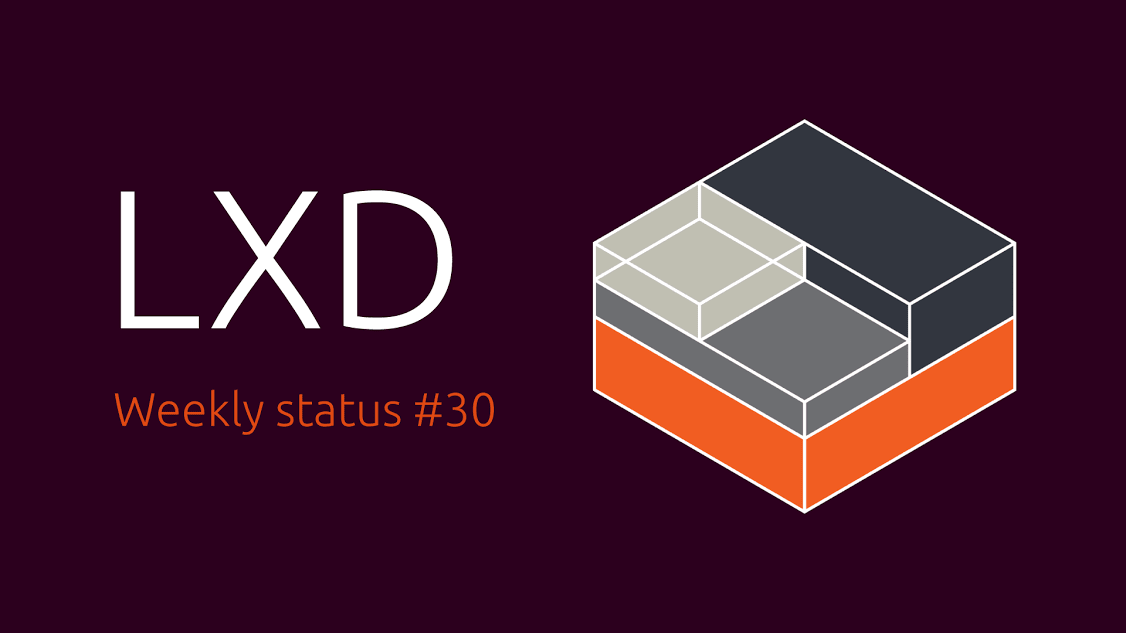LXD weekly status #30
Stéphane Graber
on 16 January 2018
Tags: containers , Linux Containers , LXD
Introduction
The main highlight for this week was the inclusion of the new proxy device in LXD, thanks to the hard work of some University of Texas students!
The rest of the time was spent fixing a number of bugs, working on various bits of kernel work, getting the upcoming clustering work to go through our CI process and preparing for a number of planning meetings that are going on this week.
Upcoming conferences and events
- FOSDEM 2018 (Brussels, February 2018)
Ongoing projects
The list below is feature or refactoring work which will span several weeks/months and can’t be tied directly to a single Github issue or pull request.
- Distributed database for LXD clustering
- Various kernel work
- Stable release work for LXC, LXCFS and LXD
Upstream changes
The items listed below are highlights of the work which happened upstream over the past week and which will be included in the next release.
LXD
- Added support for a new
proxydevice, allowing for tcp redirection. - Removed a trailing newline from the lxc-formatted idmap entries.
- Serialized the addition of new storage pools and networks.
- Fixed auto-completion of container names.
- Fixed
lxc file editwhen run using the LXD snap. - Fixed bad wording in the
lxc storagehelp. - Changed DefaultIdmapset to take a username as argument.
- Made
lxc storage volumefail properly when passed an empty pool name. - Fixed a bug which was causing some firewall rules to still be added when disabled.
LXC
- Improved idmap error handling.
- Fixed bad console logsize.
- Updated the Alpine template to allow keeping sys_ptrace.
LXCFS
- Nothing to report
Distribution work
This section is used to track the work done in downstream Linux distributions to ship the latest LXC, LXD and LXCFS as well as work to get various software to work properly inside containers.
Ubuntu
- Nothing to report (build farm was offline)
Snap
- Nothing to report (build farm was offline)
Fast, dense, and secure container and VM management at any scale
LXD brings flexible resource limits, advanced snapshot and networking support, and better security — all making for easier, leaner and more robust containerised solutions and VMs.
Newsletter signup
Related posts
Native integration available between Canonical LXD and HPE Alletra MP B10000
Native integration available between Canonical LXD and HPE Alletra MP B10000. The integration combines efficient open source virtualization with high...
Generating allow-lists with DNS monitoring on LXD
Allow-listing web traffic – blocking all web traffic that has not been pre-approved – is a common practice in highly sensitive environments. It is also a...
Native integration available for Dell PowerFlex and Canonical LXD
The integration delivers reliable, cost-effective virtualization for modern IT infrastructure Canonical, the company behind Ubuntu, has collaborated with...

